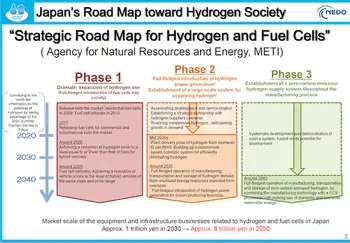James Arnett named Hydro One chair
TORONTO, ONTARIO - Former Molson Inc. CEO James Arnett is the new chairman of Hydro One, the giant Ontario government-owned transmission utility with 5,500 employees.
Arnett replaces Rita Burak, who is stepping down after five years as chair of Hydro One, which also provides local electricity service in many rural areas of Ontario.
Arnett, a partner in a major Toronto law firm, had been a special adviser to Premier Dalton McGuinty on the steel industry and helped with the restructuring two years ago of the former Stelco Inc., a major steel producer based in Hamilton.
The company was acquired last summer by United States Steel Corp. in a wave of buyouts that put most of Canada's steel industry in the hands of foreign companies.
In 2007, McGuinty appointed Arnett to review the salaries of public sector executives in Ontario's energy sector after former Hydro One CEO Tom Parkinson quit amid an expense account scandal.
Parkinson, who earned about $1.5 million a year, was under fire for taking his family on the corporate helicopter and for charging $45,000 in personal expenses to his secretary's Hydro One credit card.
Parkinson earned a $780,000 salary in 2005, plus $702,000 in bonus incentives and $130,000 in other compensation, including a $40,000 "executive allowance."
Parkinson's predecessor, Eleanor Clitheroe, launched a $30-million lawsuit against the province after she was fired in 2002 amid a public outcry over lavish spending and her $2.2-million salary.
Prior to his time with Molson's in the late 1990s, Arnett was a senior partner of a major Canadian law firm, Fraser Milner Casgrain LLP.
Molson, one of Canada's two major beer producers, later merged with U.S.-based Coors and is now known as Molson Coors Brewing Co.
Related News

Irving Oil invests in electrolyzer to produce hydrogen from water
SAINT JOHN - Irving Oil is expanding hydrogen capacity at its Saint John, N.B., refinery in a bid to lower carbon emissions and offer clean energy to customers.
The family-owned company said Tuesday it has a deal with New York-based Plug Power Inc. to buy a five-megawatt hydrogen electrolyzer that will produce two tonnes of hydrogen a day — equivalent to fuelling 60 buses with hydrogen — using electricity from the local grid.
Hydrogen is an important part of the refining process as it's used to lower the sulphur content of petroleum products like diesel fuel, but most refineries produce hydrogen using…




